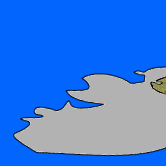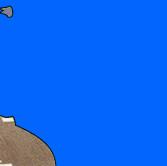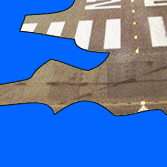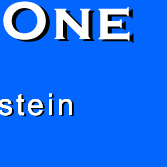 |
 |
 |
 |
 |
 |
 |
 |
 |
August 6, 2001The
Joy of Atlanticism
|
|
Text-only printable version of this article Go to the most current column by Emmanuel Goldstein Sign up to receive Airstrip One by e-mail Emmanuel Goldstein is the pseudonym of a political drifter on the fringes of English classical liberal and Euro-sceptic activity. He is a former member of the Labour Party, who knows Blair and some of his closest buddies better than they realise, yet. He has a challenging job in the real world, working for a profit-making private company and not sponging off the taxpayer in politics, journalism or the civil service. "Airstrip One," appears Mondays at Antiwar.com. |
IN THE BALANCE"However," say many of my more left-wing peacenik friends, "America is so powerful that it needs a counter balancing force." Is that relevant? Britain is like any other mid-tier power, a creature of her environment. That is Northern Europe. This means that what counts for Britain is Northern Europe, and it does not matter how powerful America is in South America, the Pacific or the Indian Ocean. In Northern Europe, America does not look too powerful. Where are the bases American bases in Northern Europe outside England? Where are the natural allies? With the exception of Norway and Denmark, Britain is the only country west of the Elbe that is both Eurosceptic and pro-American. All other Eurosceptic countries were neutrals in the Cold War, and all other non-neutrals are Europhile. Then there is France, which is a fitting subject for four or five separate columns. Taking an anti-American stance would unbalance the power in Northern Europe, rather than re-balance it. The only way in which it would (help) re-balance power would be globally. So what? Despite the advanced delusions of British imperialists, what goes on in Africa or the Middle East is of little concern to Britain, and it is certainly not worth Britain's going head-to-head with the major world power. THE TRICK OF CONFIDENCEThere is another, important, reason why we have to be nice to America: most British people simply think that their country is incapable of independence. This may be a stupid idea, but it is a prevalent one nonetheless. Never mind that as an island Britain is relatively easy to defend with an armed citizenry and a decent fishing fleet, and never mind that it is the fourth largest economy in the world. Britain, we are led to believe, is unable to survive on her own. This spell can be broken, but it will take time – and possibly, we will be too far in Europe by the time the spell is broken. Unfortunately, we have to make a choice, America or Europe. That choice has to be made in Britain's interests. THE CHOICE MADE FLESHThis would be an academic argument, except that the stark choice is being offered in British politics today. It is not the choice between Blair and Brown, which is for the future, and seemingly more nuanced. It is the Tory leadership election. The pro-European candidate, Ken Clarke, is facing the pro-American Iain Duncan-Smith. From the standpoint of national independence, both are deeply flawed. Iain Duncan-Smith will offer no serious opposition to any war involving the Americans. Similarly, every American scheme, in particular Star Wars, will be greeted uncritically no matter how it affects British interests. This may very well be bad news, but Duncan-Smith looks positively patriotic when compared to Clarke. Clarke is a Europe-first man. Since his student days as a Mosleyite, he has never seen a European scheme that he did not like. Duncan-Smith is a less immediate danger, although he is still a danger. THE LONG TERMNothing I say should detract from the fact that the British will have to part company with America one day. America may understand us better than France does, and being further away, America may have fewer clashing interests, but independence has to be Britain's long term goal. We will have to say no to Star Wars and leave NATO, we will have to take our troops out of Bosnia and stop flying over Iraq. Some of this must be done immediately. The goal must be independence, and however much America threatens our independence it is as nothing compared to the European Union. Please Support Antiwar.comA contribution of $50 or more will get you a copy of Ronald Radosh's out-of-print classic study of the Old Right conservatives, Prophets on the Right: Profiles of Conservative Critics of American Globalism. Send contributions to Antiwar.com or
Contribute Via our Secure Server |

